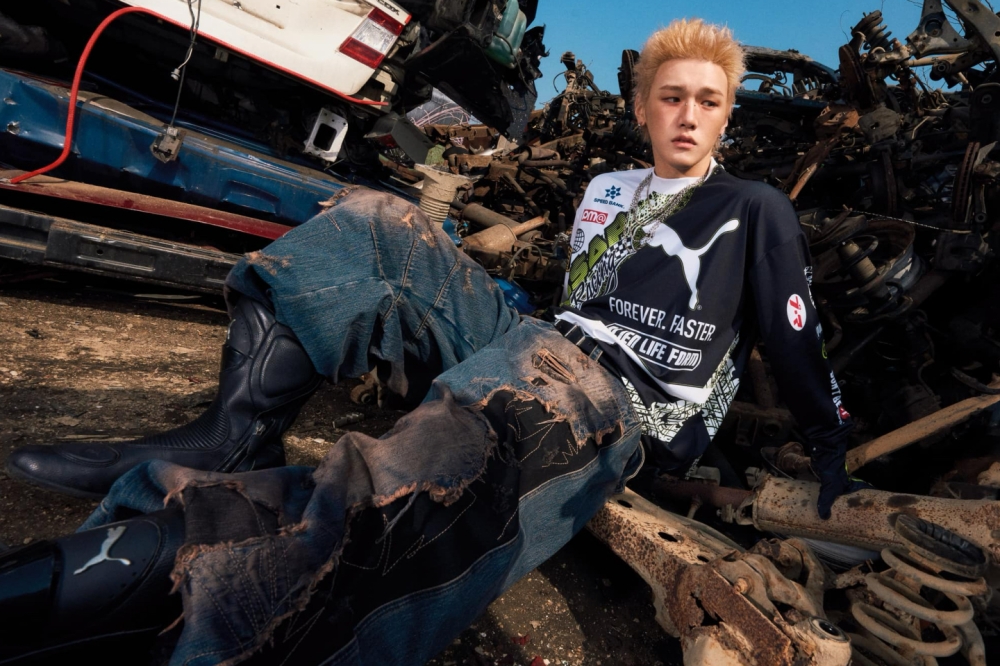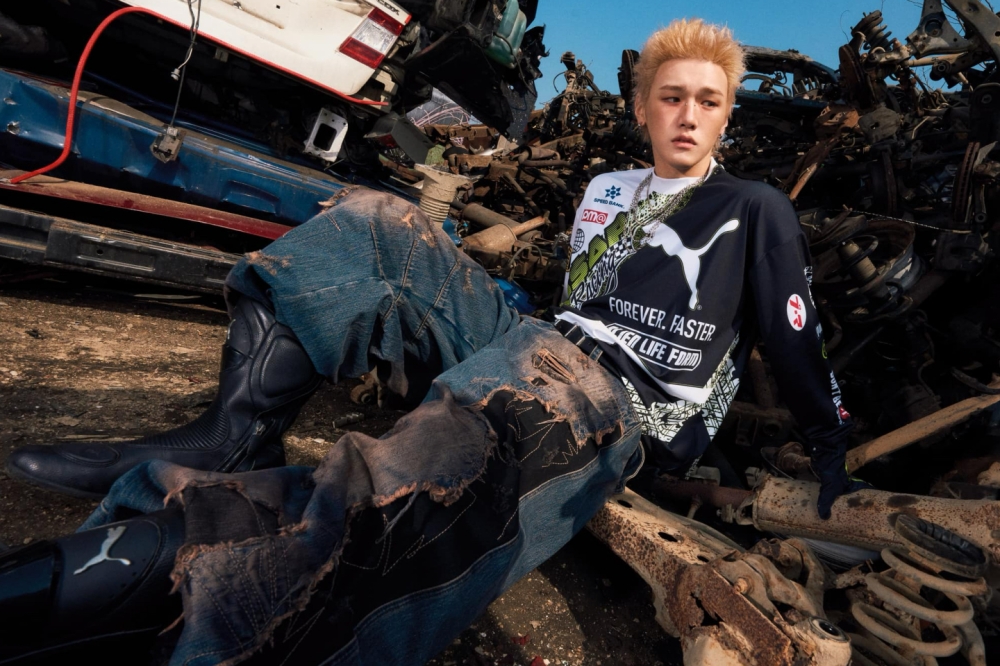The global stage is no stranger to K-pop’s infectious energy and talent, but last night, a moment of raw emotion and personal triumph resonated far beyond the music. Just B’s Bain, a rising star in the Korean boy band scene, took a monumental step forward by publicly coming out as gay in Los Angeles, captivating the audience and setting social media ablaze. This wasn’t just a statement, it was a performance. Bain chose to express his truth through Lady Gaga’s iconic anthem, “Born This Way,” delivering a powerful rendition that touched hearts and sparked conversations about representation in the world of K-pop and beyond.

The Power of Music as a Platform for Inclusivity

Bain’s public coming out is a watershed moment in K-pop, underscoring the profound power of music as a catalyst for social change and inclusivity. Music has always been a vehicle for self-expression and connection, transcending language and cultural barriers. In the context of K-pop, where the idol industry often emphasizes conformity and idealized images, Bain’s act of vulnerability and authenticity sends a powerful message of acceptance and representation to millions of fans worldwide.

Implications for the K-Pop Industry
Challenges and Risks Faced by LGBTQ+ Artists
Despite recent progress, the K-pop industry remains largely heteronormative, with LGBTQ+ artists facing unique challenges and risks. Societal homophobia and transphobia are deeply ingrained in Korean culture, and the industry’s emphasis on public image and brand management often discourages open expressions of sexuality and gender identity.
Openly LGBTQ+ artists may face backlash from conservative fans, scrutiny from the media, and potential damage to their careers. Agencies may also be hesitant to support their artists’ coming out, fearing negative repercussions from sponsors and the wider market. This creates a climate of fear and silence, where many LGBTQ+ artists feel compelled to hide their true selves.

The Potential for Increased Visibility and Acceptance
Bain’s coming out represents a significant step towards greater visibility and acceptance for LGBTQ+ individuals within the K-pop industry. His willingness to be open about his identity can inspire other artists to do the same, creating a ripple effect of change that challenges prevailing norms and fosters a more inclusive environment.
Increased visibility can also help to destigmatize LGBTQ+ identities and promote understanding among fans. By seeing themselves represented in their favorite artists, LGBTQ+ individuals can feel a sense of belonging and validation, knowing that they are not alone.
The Role of Agencies and Fans in Fostering a Supportive Environment
Agencies and fans play a crucial role in creating a supportive and welcoming environment for LGBTQ+ artists. Agencies must prioritize the well-being and safety of their artists, providing them with the resources and support they need to navigate the challenges of coming out. This includes creating clear policies against discrimination, offering mental health services, and advocating for their artists’ rights.
Fans, too, have a responsibility to be allies and advocates for LGBTQ+ artists. This means celebrating their talent and contributions, rejecting discriminatory language and behavior, and creating a space where everyone feels respected and valued. By fostering a culture of acceptance and inclusivity, fans can help to create a more welcoming and equitable industry for all.
Beyond Music: A Call for Change
The Broader Impact on South Korean Society
Bain’s coming out has sparked a wider conversation about LGBTQ+ rights and acceptance in South Korea. While the country has made some progress in recent years, societal attitudes towards LGBTQ+ individuals remain largely conservative. The coming out of a prominent K-pop artist can help to challenge these stereotypes and push for greater understanding and legal protections.
There is a growing movement for LGBTQ+ rights in South Korea, with organizations advocating for marriage equality, anti-discrimination laws, and greater visibility. Bain’s coming out can serve as a powerful symbol of solidarity and a call to action for greater social change.
The Importance of Allyship and Inclusive Representation
It is essential for allies to stand in solidarity with LGBTQ+ individuals and amplify their voices. This means speaking out against discrimination, supporting LGBTQ+ organizations, and creating a space where everyone feels safe and respected. Inclusive representation in media and popular culture is crucial for shaping societal attitudes and breaking down harmful stereotypes.
By showcasing the diverse experiences and stories of LGBTQ+ individuals, we can create a more equitable and just society for all.
Looking Ahead: A Future of Greater Diversity and Equality in K-Pop
Bain’s coming out is a significant step towards a more inclusive and representative K-pop industry. While challenges remain, his courage and visibility can pave the way for greater acceptance and diversity. As the industry continues to evolve, it is imperative that agencies, fans, and artists work together to create a space where all individuals feel valued, respected, and empowered to express their true selves.
Conclusion
Bain’s courageous coming out at KCON in Los Angeles was more than just a personal milestone; it was a watershed moment for representation in K-pop. It solidified the growing, global conversation around inclusivity within the industry, pushing boundaries and challenging preconceived notions. His powerful rendition of Lady Gaga’s “Born This Way” resonated deeply with fans, underscoring the universal themes of self-acceptance and finding your tribe.

